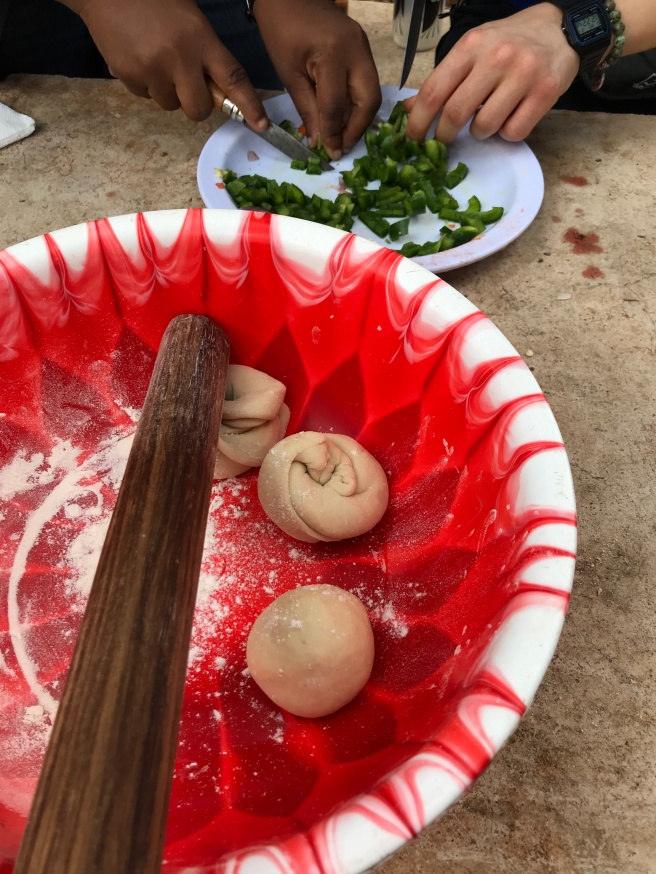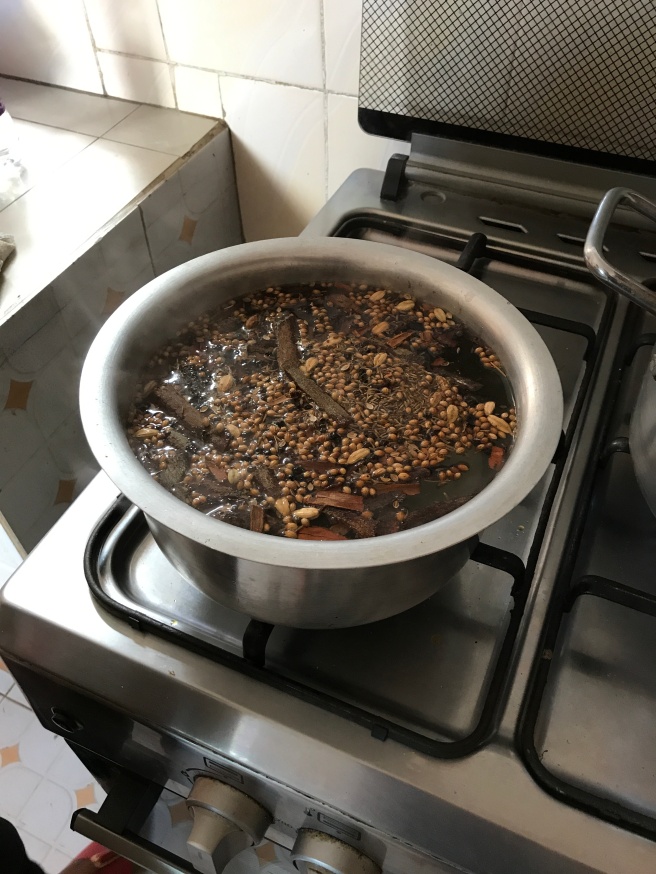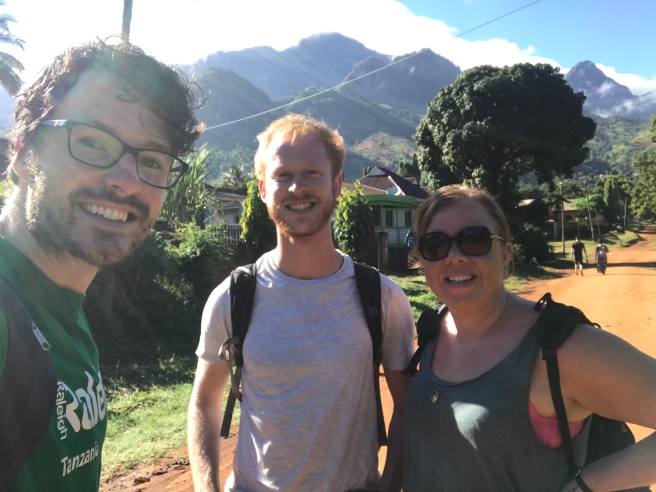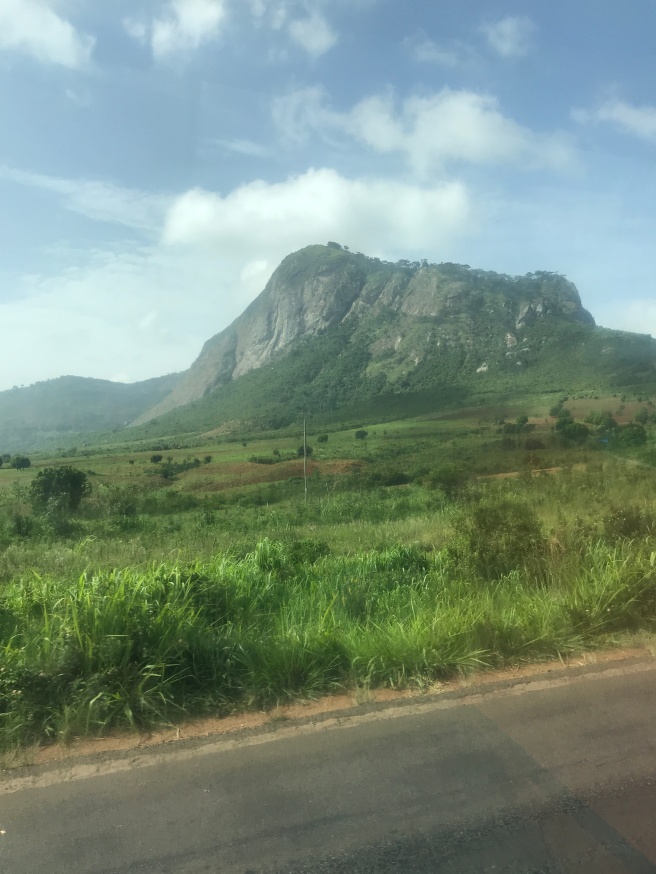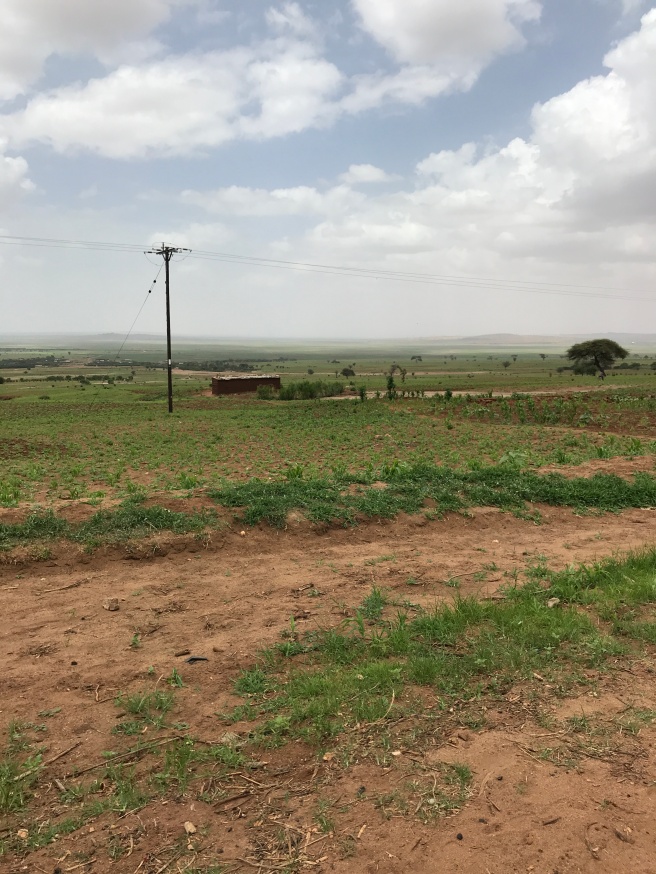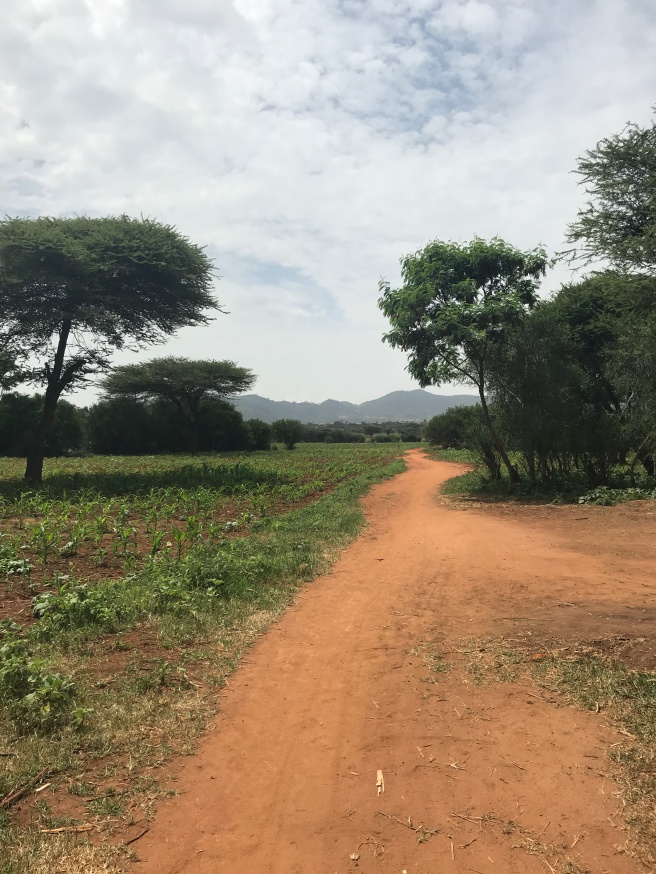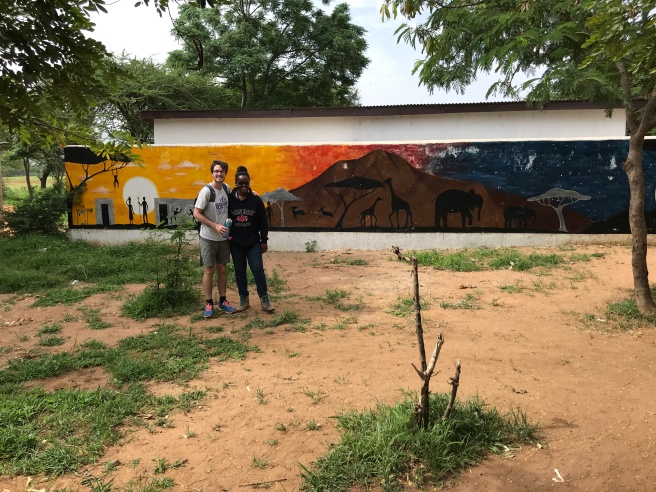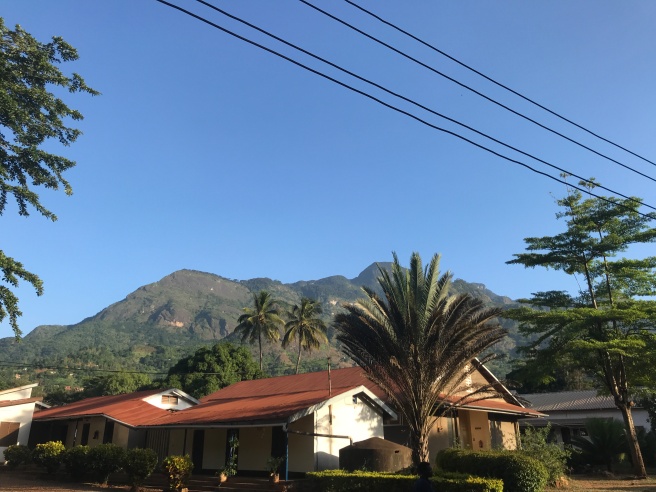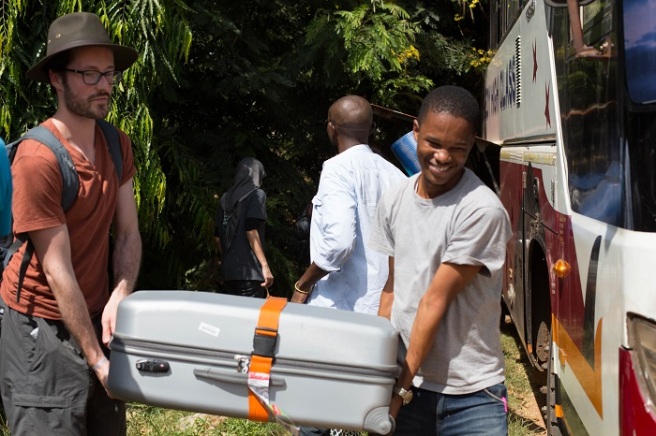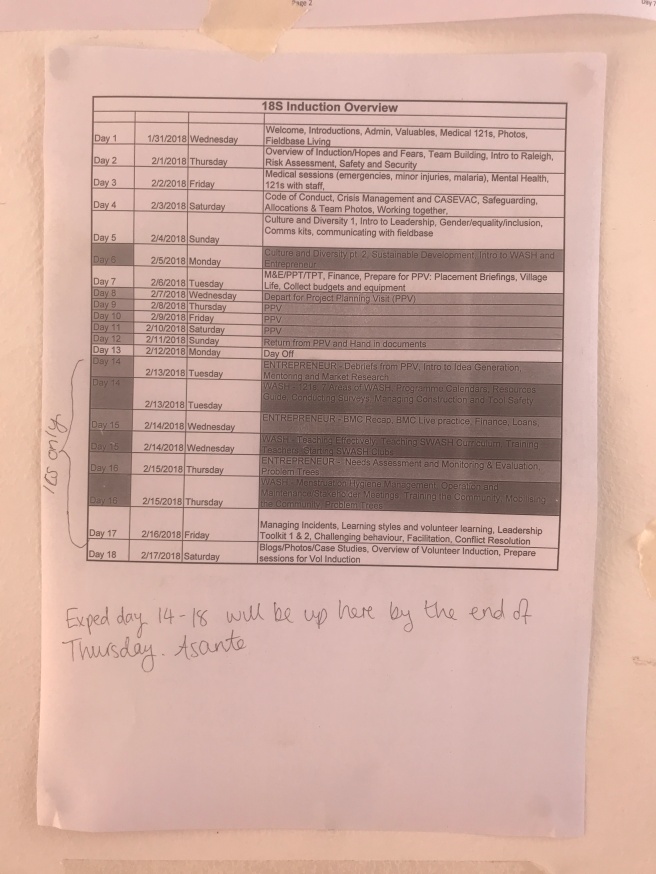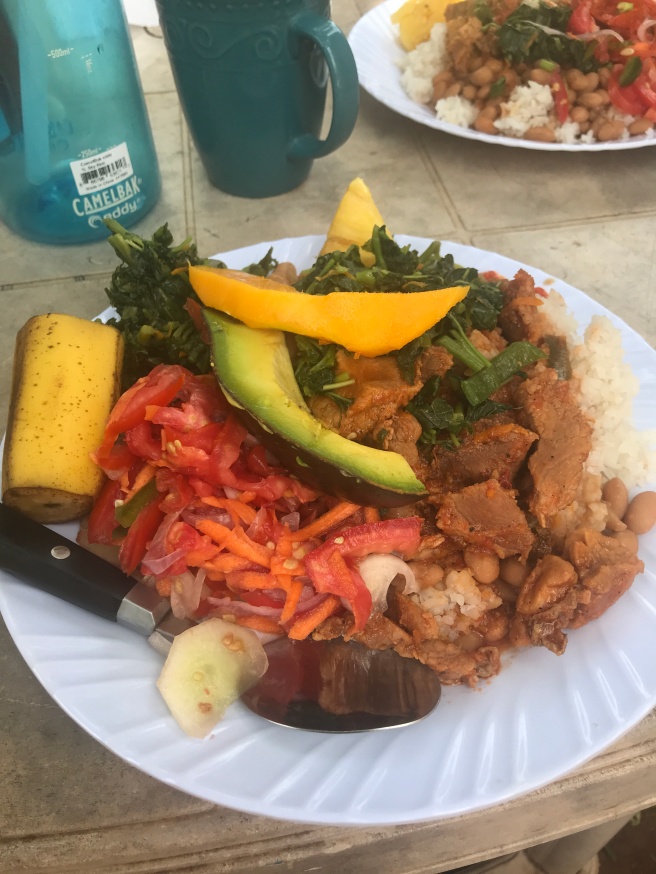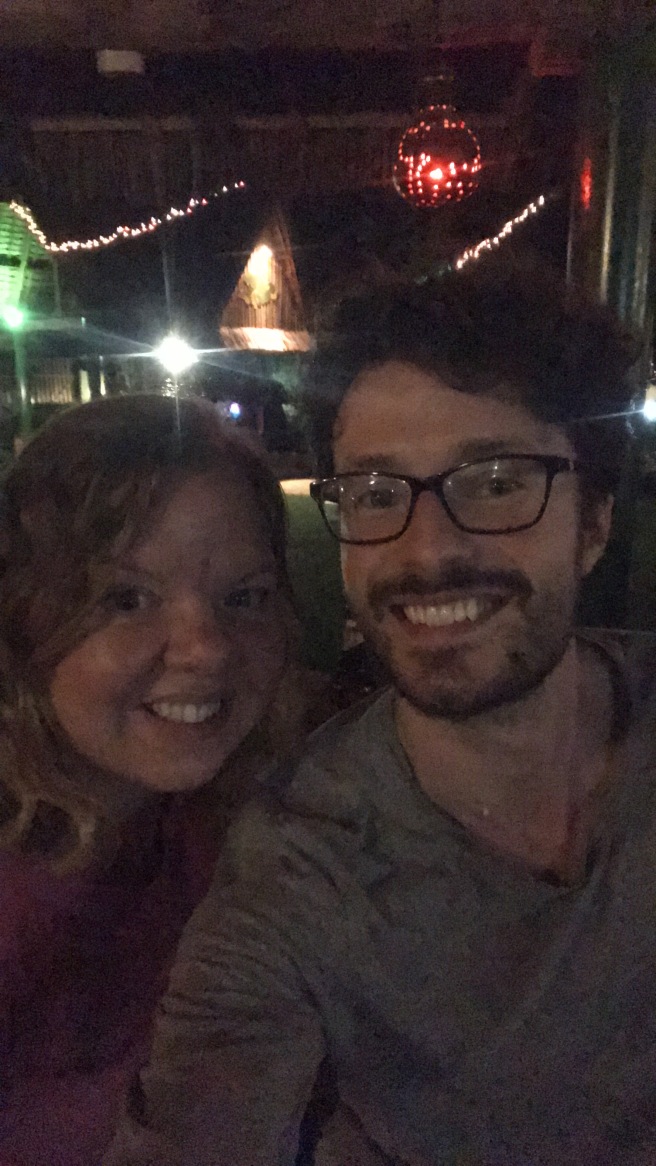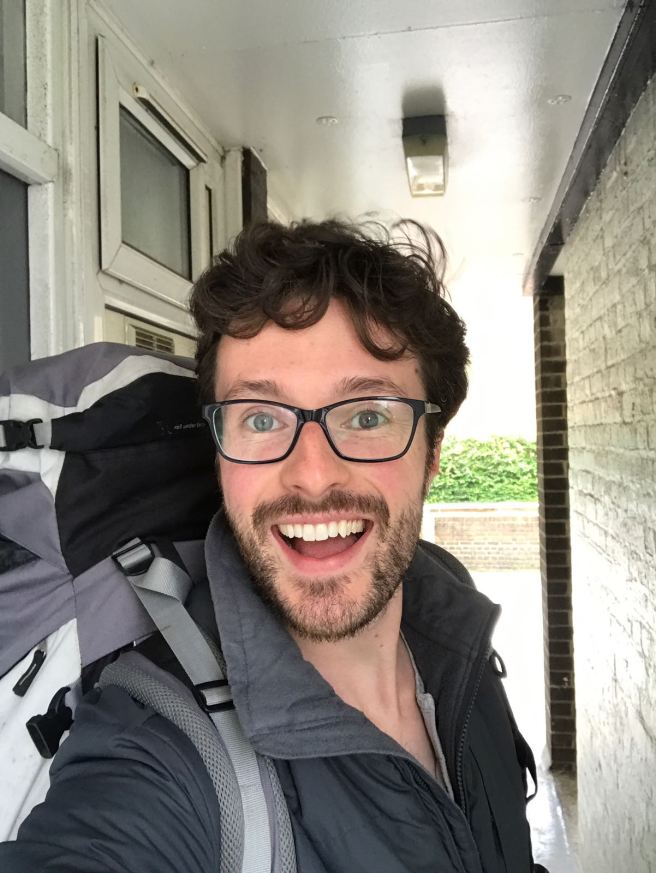In the morning the sun never rose. Thunder boomed in the mountains. Then came the rains. The tin roof rang with thousands of heavy drops, and outside a shower of bullets rained down onto the pavement. Harder and harder, louder and louder, until my head was full of rain.
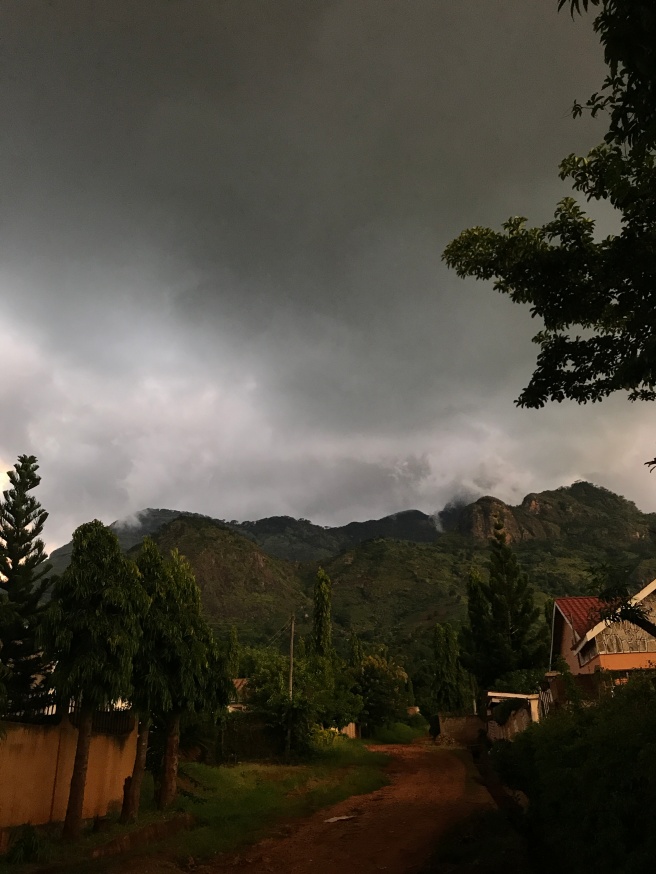
The seasons in Tanzania seem to come and go very abruptly. After a month of sweltering heat, I was quite relieved to be told it would now rain for a month. The rains do cause logistical challenges- dirt roads can become impassable, malaria and other diseases related to water become more prevalent, and construction work can be halted.
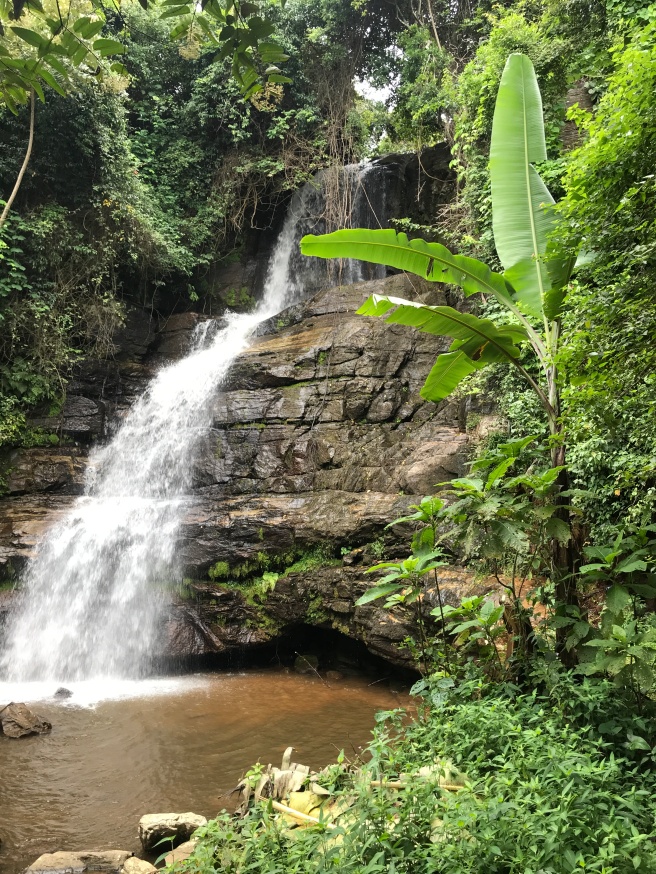
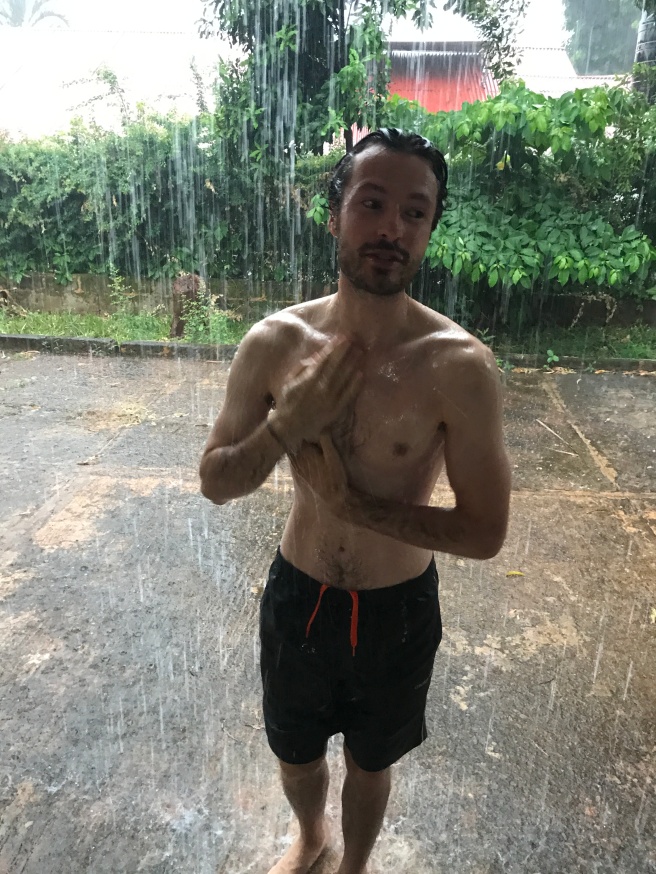
In the last week (05/03/18) I have visited three rural villages in the Kilombero region on a project support visit. Each of these villages has a need for toilets at the school (the average school has one thousand pupils and only a couple of poor quality toilets).
The drive down was beautiful, with an opportunistic safari on the main road through a national park where I saw giraffes, wildebeest, zebras and antelopes. We drove through mountain ranges, flat dry plains, and lush tropical hills with huge waterfalls cascading down from rocky outcrops.
In the villages, I provided an opportunity for one-to-one medical assessments with volunteers, a logistics manager oversaw the use of equipment, safety at the work site and delivered much needed supplies, and a Deputy Operations Manager reviewed the team and the project delivery as a whole. I also assisted with the visit in general, helping with individual reviews of the volunteers, getting stuck into the construction of toilet buildings for the school, and visiting the volunteer’s homestays (village families hosting volunteers for bed and breakfast).
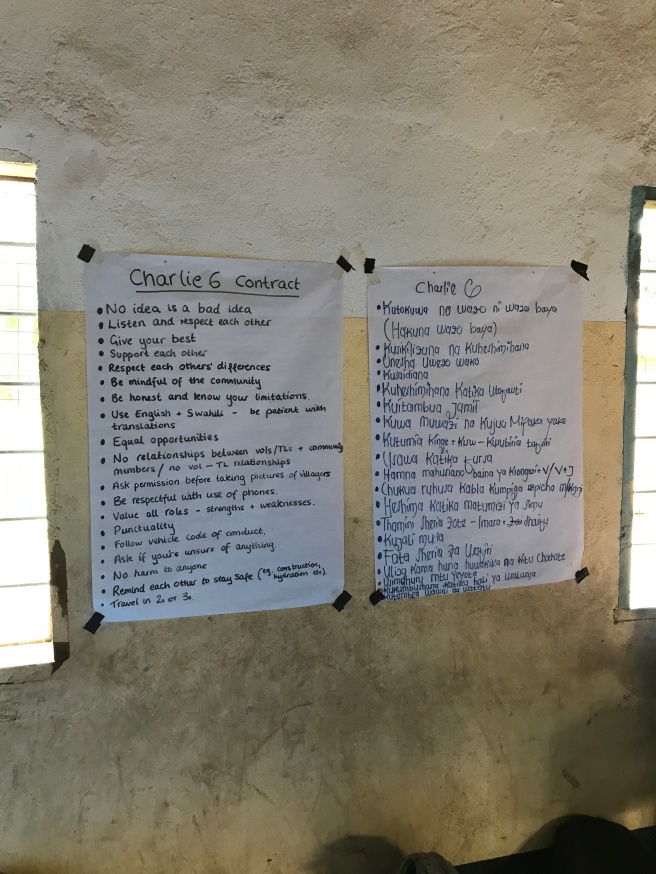
The first group made the most of the rain- the septic tank for their soon-to-be-plumbed-in toilet blocks was full of water, giving them an easy supply for their concrete mixing. I helped shift a large mound of earth and enjoyed the exercise and the productive task. The group gathered in the evenings to play games until dinner time.
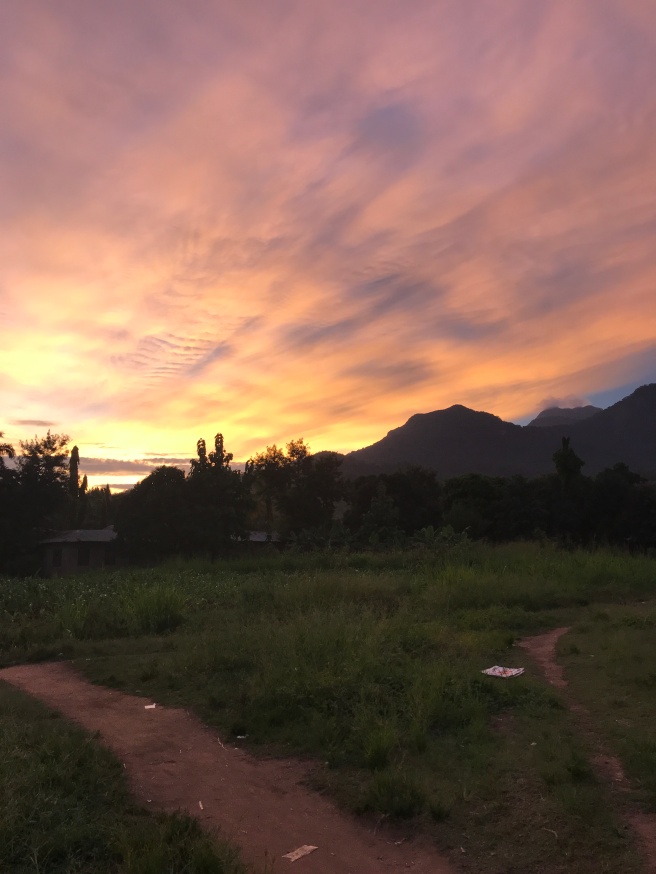
I arrived in the second village just before a big downpour. This group found an opportunity between the rain to mix and set the huge 25ft roof to their concrete septic tank; I helped empty 50kg bags of cement and mix it with sand, water and rocks to form a mixture. We then moved it in a line in buckets to fill a wooden frame containing a supportive metal grid.
As it was International Women’s Day, in the afternoon we watched a lively football match between the girls in the secondary school and a women’s charity. On a visit to each homestay in this second village I witnessed the entire sky light up with electricity. We were surrounded by a 360 electrical storm.
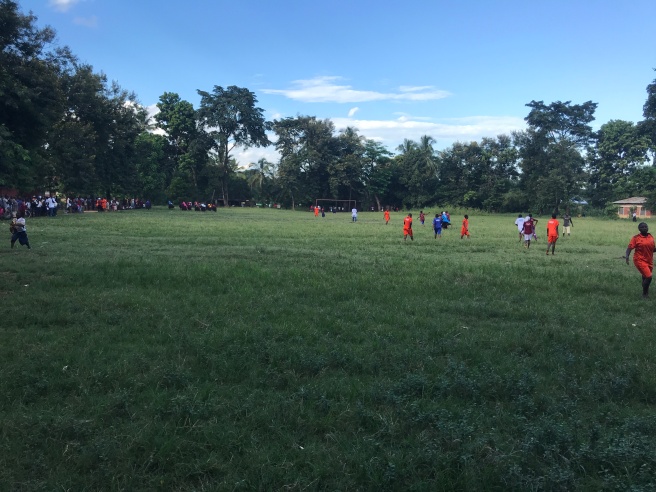
On the day of departure, I had the chance to take two volunteers to a clinic for treatment I couldn’t provide in the village using our medical supplies. I was amazed at the quality of medical care provided in such a rural area- the clinic housed a blood bank, a fully functioning laboratory, a dentist offering even root canal treatments, and a doctor who reached exactly the same conclusion as I had with one of our volunteers. Due to our jeep breaking down, we were delayed in getting to the clinic and so I stayed a third night with the second group.
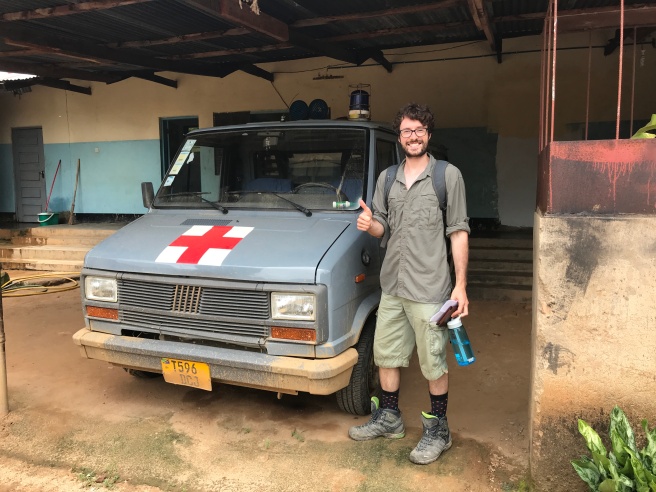
I arrived a day later than planned to the third village and didn’t have as thorough a review of their worksite progress. I did however witness the largest storm I’ve ever seen, with incessant rain that flooded the entire village. It reminded me of the monsoon scene in the film Jumanji (although no crocodiles!).
We woke at 0530 and made excellent time on our return to Fieldbase despite two further jeep breakdowns. The next morning I was due to escort three volunteers along the same road to our changeover location in Iringa. We drove through the national park and came across a herd of elephants and they’re young by the road!! They were raising their trunks in anger and so our bus driver drove off.
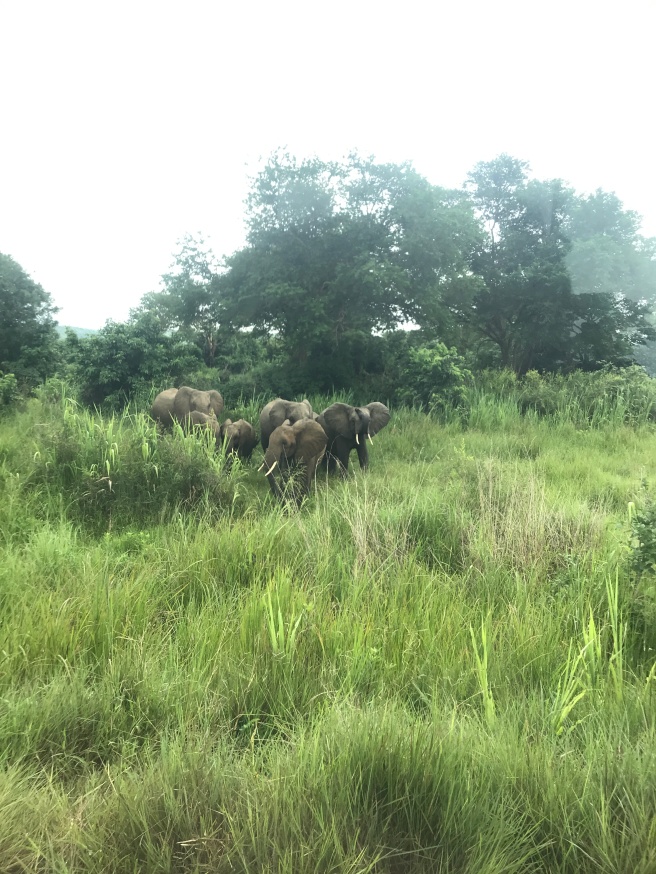
Our changeover location was a strange contrast to the tropical heat and thunderstorms of the last few weeks- it was as cool and drizzly as a late autumn day in England. I ran a clinic for unwell volunteers from the expedition teams (mainly trek related minor illnesses) and enjoyed a proper (bunk) bed after a week of varying degrees of discomfort!
After having our groups allocated for our next phase, I handed over the Fieldbase medical role to paramedic Jenny, before hitting the road towards the tiny remote village my group of ten volunteers and I would call home for the next three weeks: Nandala.
As ever, if you would like to support my time on the project, you can donate here –
https://www.justgiving.com/crowdfunding/henry-in-tanzania
(Ps – so sorry for the big delay in this post! As predicted, some issues with internet service & electricity in the villages!)




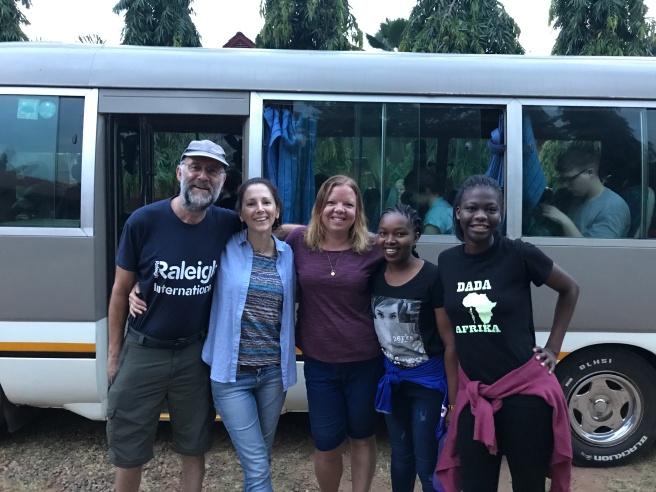 The Natural Resource Management group get ready for departure
The Natural Resource Management group get ready for departure